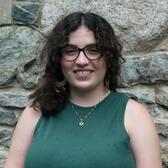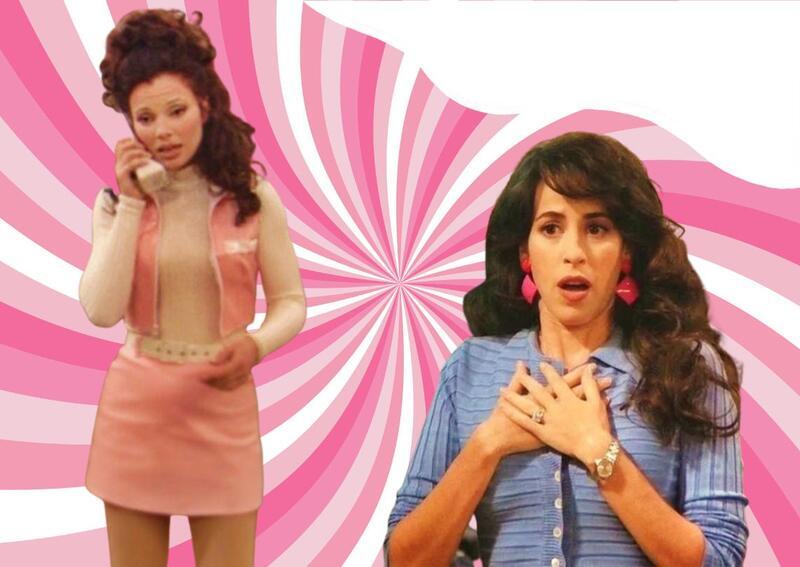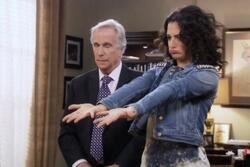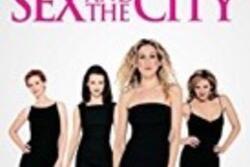Celebrating the Jewish Women of The Nanny and Friends
At first glance, Fran Fine of The Nanny and Janice Litman-Goralnik (née Hosenstein) of Friends appear to be pretty much the same character. With their tight leopard print outfits, nasally New York accents, big hair, and Jewish backgrounds, one can easily equate Fran with Janice, and Janice with Fran. But there’s an important contrast between the two, and it’s not as simple as one character is annoying and the other isn’t. The Nanny and Friends each took a stereotype of the New York Jewish woman and ran in two different directions—one, Fran, that the audience is expected to sympathize with, and one, Janice, that the audience is expected to hate. These characters are prime examples of the polarizing ways Jewish women are represented in the media.
The Nanny, a classic sitcom and a personal favorite of mine, first aired in 1993. Co-created by Fran Drescher and her then-husband Peter Marc Jacobson, it starred Drescher as Fran Fine, a Jewish woman from Flushing, Queens who gets a job as the nanny in a wealthy high society home. Drescher drew heavily on her own life and family when creating the characters of Fran, her parents Sylvia and Morty, and her grandma Yetta. The result is an unabashedly Jewish show, which never sees Fran changing for the sake of the WASPy people she’s surrounded by.
But compare Fran to Janice, Chandler’s on-and-off again girlfriend on Friends. Friends began airing a year after The Nanny, and also took place in New York City. By the fifth episode, we’re introduced to Janice, a stereotypically Jewish woman who bears a striking resemblance to Fran in dress, hair, accent, and laugh. It’s obvious that Janice was intended as a sort of Fran Fine parody—but in the process, Jewish creators David Crane and Marta Kauffman missed the point of Fran Fine.
Fran is Jewish and proud. She embraces her sexuality and is always portrayed as desirable. These qualities are never in spite of her open Jewishness, her nasally voice, or her unique fashion. Those things are part of her appeal, because they’re part of who she is. Fran is unapologetic, confident, and sexy. The family she works for, the refined British Sheffields, love and depend on her.
Janice is treated as a punchline—a mean-spirited gag. She’s a loving girlfriend and dedicated mother, but viewers are supposed to hate her for the very things that make Fran Fine so loved. The leads on Friends always complain about Janice: how annoying she is, how obsessive, how whiny. They mock the way she talks and the way she laughs. “Every time she starts laughing I just wanna pull my arm off,” says Joey, “just so I have something to throw at her.” Over the course of her nineteen appearances on Friends, the show’s writers increasingly defined her with tired stereotypes often assigned to Jewish women: loud, brash, annoying, clingy.
The problem isn’t that Janice’s personality, clothes, and mannerisms are all stereotypes. After all, Fran Fine fits into many of the same boxes. The problem is the way we, as an audience, are made to feel about those stereotypes. The intention is not for viewers to root for Janice or to feel bad about the way she’s treated; it’s for viewers to dislike her just as much as the six friends do.
Because she is rejected and made fun of by the most popular group of friends in the country, the show suggests that all the things that make Janice who she is are bad and undesirable. To me, Janice is aspirational. She’s happy, she does what she wants, she’s secure in herself, and doesn’t let anyone get to her. Yet Friends seems to be saying that Janice is not someone to emulate or someone to laugh with, but instead somebody to disparage and avoid.
The Nanny sends an entirely different message. Like Janice, Fran is openly emotional and puts it all out there, but she isn't shamed for it. She is portrayed as a blessing to the reserved, lonely Sheffields—the Maria to their Von Trapps. She brings joy, fun, and a new culture into the household, and is adored for it.
It wasn’t an accident that Fran Fine is Jewish. It mattered so much to Drescher that she fought for it. “When we got green-lighted to write the pilot for The Nanny,” Drescher said in 2020, “I guess the network was already talking to major sponsors ... who said, ‘It sounds great—we’ll buy the show outright. But the nanny has to be Italian, not Jewish.’” But Drescher stood her ground. She was very deliberate about creating a show that portrays Jewish characters living openly Jewish lives without having to explain themselves and their culture to a largely gentile audience. The Nanny, while certainly not perfect (it has its own problems regarding body image and outdated jokes) nor an all-encompassing representation of Jewish Americans (since it highlights only the experiences of white, Ashkenazi, cis-women living in New York), features many positive depictions of Jews and brought an oft-ridiculed Jewish New York culture to mainstream audiences.
Meanwhile, Janice’s Judaism seems to function solely for the purpose of taking advantage of cheap jokes about a particular kind of Jewish woman. And because Friends is still so massively popular, many more people will be introduced to Janice Litman-Goralnik than they will be to Fran Fine. These representations have an impact on Jewish and non-Jewish people alike. For some, it can reinforce or create negative stereotypes of Jewish women, and for others it might reinforce their own internalized antisemitism. The Nanny and Friends were both primetime shows with a broad reach and are now in syndication. Millions of people were and continue to be influenced by these portrayals.
Especially because Janice’s character appeared directly on the heels of Fran, the show’s treatment of her feels like an insult. Friends fits right into a long and unfortunate history of Jewish people creating art and media that put down Jewish women, and that lean into old, degrading stereotypes—from The Jewish Mother to The Jewish American Princess—that paint Jewish women as vulgar, unattractive, and unwanted. It’s possible that internalized antisemitism contributed to David Crane and Marta Kauffman’s portrayals of Janice and the other Jewish women on the show, even among the main characters, like Monica, the neurotic chef eager to get married and have babies, and Rachel, the unacknowledged but obvious Jewish American Princess.
I think it’s time, as we start to evaluate Friends more critically for all its issues regarding race, weight, and homophobia, that we also evaluate the Jewish characters on the show more critically, and consider the less-than celebratory message they send. The Nanny, on the other hand, has been chronically underappreciated for its many achievements, and deserves to be revisited with a new admiration for its stories and characters. It was a huge leap forward for Jewish representation on television. Created by and starring a Jewish woman, it was authentic, relatable, and hilarious. In Janice and Fran, I see some of myself—a chatty Jewish woman with curls and a loud laugh. I too am emotional, and I just so happen to own a pair of leopard print slippers. I never found Janice annoying, or saw Fran as anything less than who she is—funny, beautiful, independent.
One wonders what Friends could have been like had it leaned into its Jewishness, and what the current television landscape would look like if The Nanny had not. In any case, rather than hiding behind assimilation and a fear of being loudly, obviously Jewish, television writers today would do well to learn from both of these shows and strive to showcase the kind of layered, authentic Judaism seen in The Nanny.
This piece was written as part of JWA’s Rising Voices Fellowship.








I adore Fran Drescher and her humor and acting talent! I am Italian, but worked with many Jewish gals in NYC in the 70’s! They were very family oriented and true friends to me! I am watching the Nanny series again after many years! It provides some much needed escape thru humor during these trying political times! The acting is supreme! Fran Drescher should be in the Hall of Fame for comics! She has it all!! Bravo!
Even though Janice was a punchline she actually became a beloved character. That is the only reason why she's a recurring guest. She's make an appearance in every season of Friends.
I practically know Friends & The Nanny by memory, I love both shows equally and I am streaming The Nanny for probably the 5th or 6th time in less than 4 years and I rather spend more time with Janice than Sylvia Fine! I find Fran could sometimes be just a bit more annoying than Janice.
I love the show the nanny. I’ve watched every episode years ago and I am re-watching it now I laugh through every episode I absolutely love it. I can relate I’m Jewish :-)
I am German and love Friends. I knew that Maggie Wheeler is Jewish but I did not know that her character traits are or are supposed to be typically Jewish stereopypes. I haven't watched 'the Nanny' so I had no idea about any parallels. I doubt that other German viewers got the idea. I liked the character of Janice in spite of her voice, but Friends is a comedy so it is part of the show. I think Janice was very attractive and I welcomed her appearance in the show.